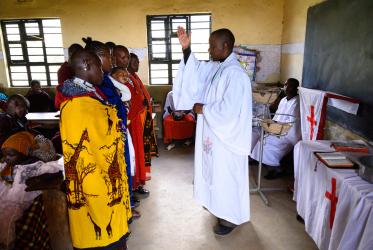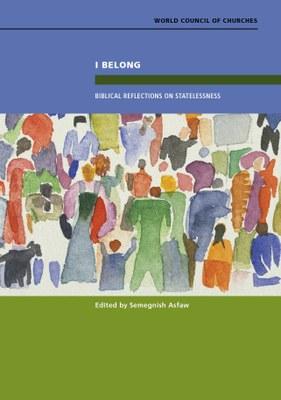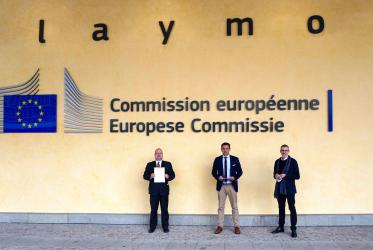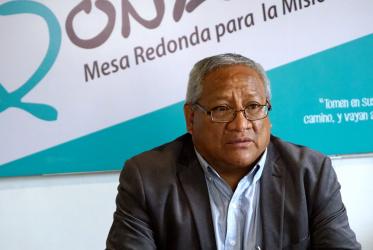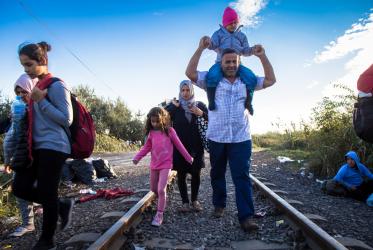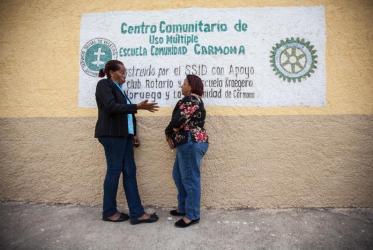Displaying 1 - 20 of 22
Christians in Africa face increasing violent attacks, repression
23 December 2020
Webinar - “People on the Move: Solidarity and Advocacy”
12 November 2020
https://www.oikoumene.org/live
Webinar will highlight “People on the Move: Solidarity and Advocacy”
05 November 2020
I Belong: Biblical Reflections on Statelessness
Biblical Reflections on Statelessness
12 October 2020
Ecumenical statement on migration received by European Commission
25 September 2020
Webinar on Middle East racism: “Never lose hope”
28 November 2019
Religious organizations speak up on refugee crisis at UN event
29 January 2018
In Lebanon, refugees face hardship - but find hope
16 March 2017
WCC speaks on behalf of forcibly displaced persons
28 June 2016
Fleeing from – rather than to – a place
10 February 2016
WCC urges responsibility for and support to the refugees in Europe
04 September 2015
Church leaders address statelessness in Dominican Republic
03 February 2015



